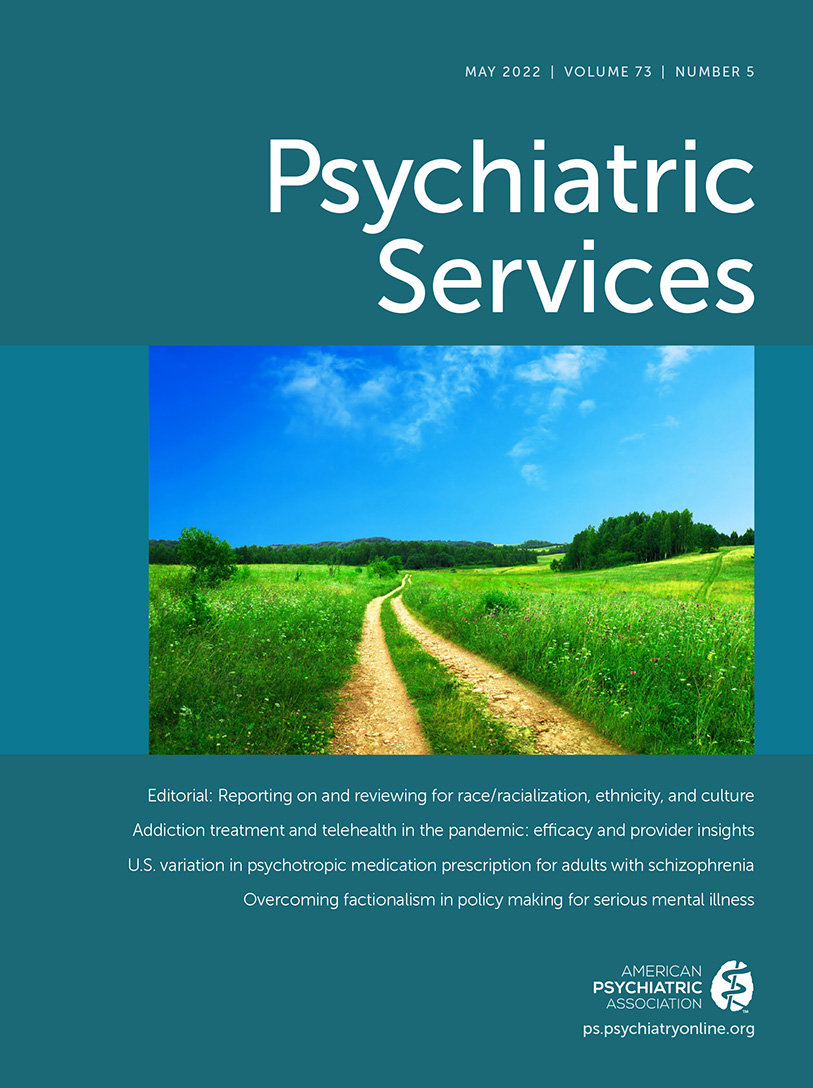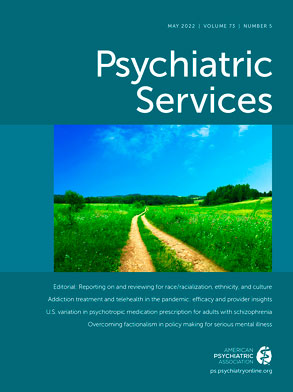Smith and Sisti, the authors of the article “Rapprochement and Reform: Overcoming Factionalism in Policy Making for Serious Mental Illness” (
1) in this issue of
Psychiatric Services, make a good-faith effort to argue the case for a more inclusive national commission for making and guiding policy on serious mental illness. There are many potential reasons for recommending such a commission, but the authors focus primarily on the need for meaningful inclusion of disparate stakeholder voices in the process. I agree that a commission has the potential to accomplish this goal, but I think their article overlooked some issues in the history of prior efforts. An article can cover only so many topics, so I am pleased that the editor of
Psychiatric Services has asked for me to make additional comments on this thoughtful piece. I offer these additions and amendments from my perspective as someone who began his professional career working at the National Institute of Mental Health (NIMH), serving on the work group that developed the National Plan on the Chronically Mentally Ill, a byproduct of the Carter Commission, and who later served as a consultant to the President’s New Freedom Commission during the George W. Bush administration.
The analysis in Smith and Sisti’s article appropriately references the aforementioned National Plan and the involvement of various stakeholders in its workings. It does not, however, give sufficient credit to the National Plan, nor to the Carter Commission and the NIMH, for contributing to an important development in policy for people with serious mental illness—the creation and nurturing of the Community Support Program (CSP) (
2). The CSP endorsed the significant involvement of service users and family members in natural support systems, bolstered by clinical and social welfare services within CSPs. The CSP promoted the concept of recovery and provided a service framework to support that recovery. CSPs became the nationwide approach to care and treatment for individuals with serious mental illness in virtually every state and locale. The CSP and its array of clinical, social welfare (e.g., housing), and natural support services were designed to promote recovery and involve service users and their families. Unfortunately, community support systems and services have not been fully implemented, leaving a gap between design and practice. As a result, the objectives of citizen involvement have not been fully realized, but I am not sure that factionalism and the lack of stakeholders explains this deficiency so much as a lack of political will to fully fund these services.
Scientific reviews of treatments and services have revealed this significant gap between what effective treatments and service approaches could offer and what treatments and services are actually offered and received. Reviews such as the mental health report of the surgeon general (
3) have involved service users and family members as authors and reviewers. The Substance Abuse and Mental Health Services Administration’s (SAMHSA’s) initiative in evidence-based practices, designed to address the implementation gap between the opportunities and realities of treatment and services, have also involved service users and family members in its efforts. What the authors omit in their discussion of stakeholders and factions is any mention of the issues of race and ethnicity, which were the focus of an extensive supplement to the report on mental health from the surgeon general (
4) and have only grown in importance with regard to mental health policy for people with serious mental illness.
Another omission worth mentioning is the perspective on mental health policy decision making presented by Frank and Glied in their book,
Better but Not Well (
5). They note that the most consequential improvements in mental health services in the past half-century derived from policy changes in mainstream health and social welfare programs, such as Medicaid, Medicare, and Social Security Disability Insurance, rather than in categoric programs dedicated to mental health alone. This perspective on mainstream programs had been central to the work on the earlier National Plan, growing out of the Carter Commission, and was the focus of a sequence of incremental policy changes in these health and social programs (
2). Decision making on mental health policy, thus, became decentralized, mostly outside the direct influence of SAMHSA, posing an additional challenge to overcoming policy factionalism. The New Freedom Commission during the George W. Bush administration tried to deal with this decentralization by involving a few representatives from these mainstream programs and the agencies that oversaw them and by appointing commissioners representing service users and families. But these efforts, by themselves, did not overcome the challenges posed by factionalism.
Smith and Sisti are quite correct in citing the problems of factionalism within the various commissions and report development processes. They reference the work of historian Gerald Grob, who drew attention to these issues in his historical analyses of earlier national and presidential commissions. Later analysis, which I coauthored with Grob (
2), concluded with a brief consideration of the Bush Commission and some of the other policy initiatives noted above and sounded a more positive note about dealing with stakeholder involvement and factionalism. We concluded our book with a comment suggesting that Smith and Sisti are on the right track with this aspect of their analysis. Referring to people with serious mental illness, we wrote: “Many of these persons have a strong wish to participate in their care and in making mental health policy. . . . They seek respect as full partners in the process of improving services and resources to support recovery and transformation” (
2).
Although I am not sure that a presidential commission is the only (or even the best way) to address and overcome factionalism in our field, these authors are to be commended for putting the issue of meaningful involvement of all stakeholders at the center of transforming mental health policy.

